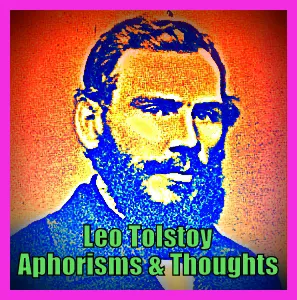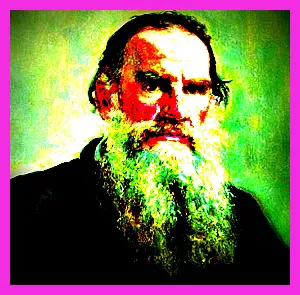Read these Mahatma Gandhi life principles and political thoughts are enough to tell you about him.
Mohandas Karamchand Gandhi, more popularly known as Mahatma Gandhi, was an influential figure in the Indian Independence Movement.
He led India’s independence independence movement without any violence.
This great Indian political and spiritual leader advocated civil disobedience or non-violent, but aggressive protest, known as satyagraha.
Mahatma Gandhi believed all mankind should be united under one God.
According to him, it is more correct to say that Truth is God than to say God is truth.
He wrote:
"Nothing is or exists in reality except Truth." - Mahatma Gandhi(The Selected Works Of Mahatma Gandhi: The Voice Of Truth, Vol. 6, By M.K. Gandhi, Edited
Besides non-violence, there are two aspects of life which is also synonymous with Gandhi are: love and forgiveness.
He not only changed the course of Indian history, but his life philosophy has great impact all the world over.
One of his famous followers was Nelson Mandela, the South African anti-apartheid revolutionary and political leader.
Gandhi aka Bapu's social and political ideologies was so strong that there is a movement called Gandhism.
Remember even the German-born theoretical physicist, Albert Einstein has this to say about Gandhi or "Father Of Nation":
“Generations to come, it may be, will scarce believe that such a one as this ever in flesh and blood walked upon this earth." - Albert Einstein
(Out of My Later Years: The Scientist, Philosopher And Man Portrayed Through His Own Words By Albert Einstein, Wings Books, 1956, p.240) source
Mahatma Gandhi Life Principles And Political Thoughts
Now, let's check out Mahatma Gandhi life principles and political thoughts are enough to tell you about him.
"For me patriotism is the same as humanity. I am patriotic because I am human and humane.” - Mahatma Gandhi
(India Of My Dreams By M. K. Gandhi, Compiled By R. K. Prabhu, With A Foreword By Dr. Rajendra Prasad, India: Jitendra T. Desai, Navajivan Publishing House, 1947, CH. 3, In Defense Of Nationalism, p.20)“What barrier is there that love cannot break?” - Mahatma Gandhi
(Autobiography Or The Story Of My Experiments With Truth By M. K. Gandhi, Translated From The Gujarti By Mahadev Desai, India: Navajivan Publishing House, 1948, Part II, Ch. XXVIII, Poona And Madras, p.222)
(The quote is also found in: Autobiography: The Story Of My Experiments With Truth, Courier Corporation, 1983, Part II, Ch.XXVIII, Poona And Madras, p.158)
"My life is my message." - Mahatma Gandhi
(Gandhi’s Life In His Own Words By M. K. Gandhi, Compiled By Krishna Kripalani, India: Navajivan Publishing House, 1983, p.1)
“A man of few words will rarely be thoughtless in his speech; he will measure every word.” - Mahatma Gandhi
(An Autobiography Or The Story Of My Experiments With Truth By M. K. Gandhi, Translated From The Gujarati By Mahadev Desai, India: Navajivan Publishing House, 2004, Ch.18, Shyness My Shield)
(This quote is also found in: Autobiography: The Story of My Experiments with Truth By Mahatma Gandhi, Courier Corporation, 1983, Part I, Ch. XVIII, Shyness My Shield; p.55)
(The original source of the quote: Young India, Volume 8, India: Navajivan Publishing House, 1926, p.128)
“The seeker after truth should be humbler than the dust. The world crushes the dust under its feet, but the seeker after truth should so humble himself that even the dust could crush him. Only then, and not till then, will he have a glimpse of truth.” – Mahatma Gandhi
(My Experiments With The Truth By Mohandas Karamchand Gandhi, Start Publishing LLC, 2012, Introduction)
(The quote is also found in: Autobiography: The Story Of My Experiments With Truth By M. K. Gandhi, Translated From The Gujarati By Mahadev Desai, India: Navajivan Publishing House, 2005, Introduction)
"Prayer is nothing else but an intense longing of the heart." - Mahatma Gandhi
(Prayer By M. K. Gandhi, Compiled & Edited By Chandrakant KajiI, India: Navajivan Publishing House, 1977, Ch. 1, Meaning Of And Necessity For Prayer, p.6)
(The quote is also found in: Collected Works Of Mahatma Gandhi, Volume 32, Publications Division, Ministry of Information and Broadcasting, Government of India, 1958, p.432)
"If I was a perfect man, I own I should not feel the miseries of neighbors as I do" - Mahatma Gandhi
(The Mind Of Mahatma Gandhi By M. K. Gandhi, Compiled & Edited By R. K. Prabhu & U. R. Rao, With Forewords By Acharya Vinoba Bhave & Dr. S. Radhakrishnan, India: Navajivan Publishing House, 1960, I, Of Myself, I Know The Path, Search For Truth, p.18)
(The quote is also found in: The Essential Gandhi: His Life, Work, And Ideas: An Anthology, Edited By Louis Fischer, Vintage Books, 1962, p.159)
"...abstinence is forgiveness only when there is the power to punish; it is meaningless when it pretends to proceed from a helpless creature." - Mahatma Gandhi
(My Non-Violence By M. K. Gandhi, Compiled And Edited By Sailesh Kumar Bandopadhyaya, India: Navajivan Publishing House, 1960, Ch. 1, The Doctrine Of The Sword, p.3)
(The quote is also found in: All Men Are Brothers By Mohandas K. Gandhi, Bloomsbury Publishing, 2005, Ch. IV, Ahimsa Or The Way Of Non-violence p.100)
"Non-violence is not a cover for cowardice, but it is the supreme virtue of the brave. Exercise of non-violence requires far greater bravery than that of swordsmanship." - Mahatma Gandhi
(My Non-Violence By M. K. Gandhi, Compiled And Edited By Sailesh Kumar Bandopadhyaya, India: Navajivan Publishing House, 1960, Ch. 13, Has Non-violence Limits?, p.3)
(The quote is also found in: The Mind Of Mahatma Gandhi By M. K. Gandhi, Compiled And Edited By Ramachandra Krishna Prabhu, U. R. Rao, With Forewords By Acharya Vinoba Bhave & Dr. S. Radhakrishnan, India: Navajivan Publishing House, 1967, Ch. 21, The Gospel Of Non-Violence, No Cover For Cowardice, p.119)
"There is no such thing as defeat or despair in the dictionary of a man who bases his life on Truth and Non-violence." - Mahatma Gandhi
(My Non-Violence By M. K. Gandhi, Compiled And Edited By Sailesh Kumar Bandopadhyaya, India: Navajivan Publishing House, 1960, Ch. 2, Theory And Practice Of Non-violence, p.49)
(The quote is also found in: Non-Violent Resistance Satyagraha) By M. K. Gandhi, New York: Dover Publications, Inc, 2001, Sect. Tenth: Questions And Answers, Ch. 169, On Non-Violence, Questions In Paris And Geneva, p.358)
"FEARLESSNESS IS the first requisite of spirituality. Cowards can never be moral." - Mahatma Gandhi
(The Mind Of Mahatma Gandhi By M. K. Gandhi, Compiled And Edited By Ramachandra Krishna Prabhu, U. R. Rao, With Forewords By Acharya Vinoba Bhave & Dr. S. Radhakrishnan, India: Navajivan Publishing House, 1967, Ch. 3, Fearlessness, The Gospel of Fearlessness, p.59)
(The quote is also found here.)
Note: Here are four sites where you can read and inspired by Mahatma Gandhi's free collection of books:
MKGandhi
Gandhi Heritage Portal
MKGandhi Sarvodaya
Gandhi Sevagram Ashram



